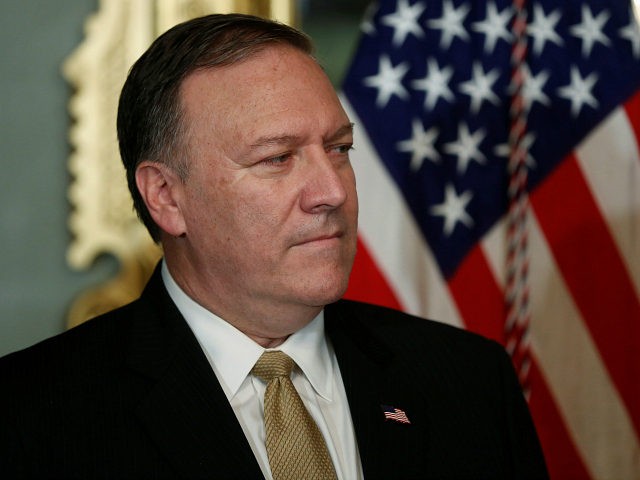State Department nominee Mike Pompeo easily deflected Democrats’ softball questions about his prior criticism of Islamic ideology.
Pompeo was able to dodge the issue of Islam’s belligerent ideology at his confirmation hearing on Thursday because Democrats also dodged the issue by asking for his views about the uncontroversial personal rights of Americans who are Muslims.
That unspoken cooperation allowed the pro-migration Democrats and the pending Secretary of State to hide the difficult issue of how the federal government should deal with mainstream Islam’s belligerent ideology, cited by many orthodox adherents as the motivation for their “Allah is Supreme” (Allahu Akbar) terror attacks.
Pompeo’s tactful responses denied Democrats an easy excuse to vote against his confirmation. The tact is needed because the GOP holds only 51 seats in the closely divided chamber. Also, the GOP has just a one-vote advantage in the foreign relations committee which likely will cast the first votes on Pompeo’s nomination.
The first set of questions came from New Jersey Democratic Sen. Cory Booker, who asked Pompeo if individual Americans who are Muslims have a “special obligation” to denounce terror attacks.
“Senator, each and every human, not just Americans, each and every human being has an obligation to push back against this extremist use of violence,” he told Booker.
Pompeo used the opportunity to hint that Islamic adherents have a particular obligation to speak against Islamic war doctrines whenever they are mentioned by Islamic clerics and believers, saying:
I also do believe this firmly: That for certain places, for certain forms of violence, there are some [people] who are better positioned, who are more credible, more trustworthy, have a more shared experience, and so when it comes to making sure we don’t have a terrorist brewing in places where Muslims congregate, there is a special place, right – they have an oppor[rtunity]. It is more than a duty, more than a requirement, it is an opportunity, right?
In his turn, Massachusetts Democrat Sen. Ed Markey tried to criticize Pompeo’s past critical statements about Islam, but he also reduced the ideological and theological issues to a matter of personal rights.
“There are isolated incidences of aberrant Muslim activity but in the whole, these are good people, they are religious people,” said Markey, whose party’s identity-politics ideology claims there are no significant theological or ideological differences between Muslims, Jews, Christians, Buddhists and others.
Pompeo is an American conservative, so he prefers to distinguish between a person and their theology or ideology. He responded:
I have then and feel know that everyone has a responsibility to speak about these terrorist attacks … it is true that many [Islamic] leaders spoke out about it — I’m not sure we ever get to the point where it is enough.
Markey also pressed Pompeo to apologize for past statements he made about Islamic leaders in Boston, presumably including the radical leaders of the Islamic Society of Boston‘s mosque, following the 2013 Boston bombing by two immigrant Muslims. The immigrant Muslims killed three Americans with bombs and later murdered a policeman.
Pompeo said in 2013:
When the most devastating terrorist attacks on American in the last 20 years come from overwhelmingly from people of single faith, and are performed in the name of that faith, a special obligation falls on those that are the leaders of that faith. Instead of responding, silence has made these Islamic leaders across America potentially complicit in these acts.
But Markey personalized the criticism, so Pompeo again dodged the question of whether Islamic beliefs contributed to the attack, adding “it was not my intention in any respect to suggest the [Islamic leaders] were part of the chain of events that led to the attack.”
Pompeo continued:
To the extent the [Islamic leaders] condemned the [Boston] attacks … I’m happy they did that — I think that is is a good thing. I think it reduces the chance that a thing like this happens again.
In contrast to Christianity, which urges the separation of religious life and government, and which also denounces violence, Islam’s theology declares the government and people’s lives are subservient to the religion, and it promises heavenly rewards to believers who spread Islam by the sword. Christianity teaches believers to love and treat others as they prefer to be treated, while Islam urges followers to hate what Allah hates.

COMMENTS
Please let us know if you're having issues with commenting.